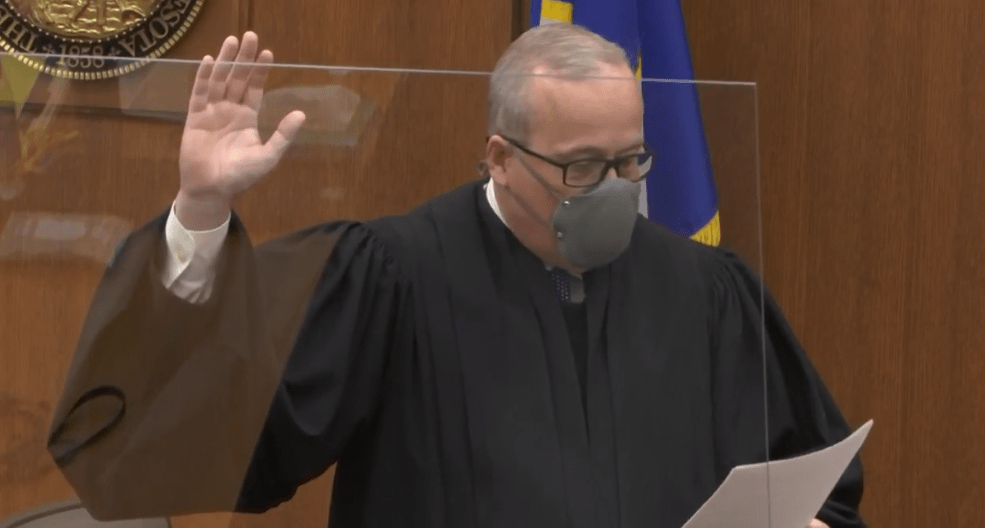Judge is asked to change 'trauma' wording in Chauvin memo

In March, Hennepin County Judge Peter Cahill swears in the jurors before opening statements in the trial of ex-Minneapolis police officer Derek Chauvin charged in the killing of George Floyd.
Screenshot of Court TV file
Go Deeper.
Create an account or log in to save stories.
Like this?
Thanks for liking this story! We have added it to a list of your favorite stories.


